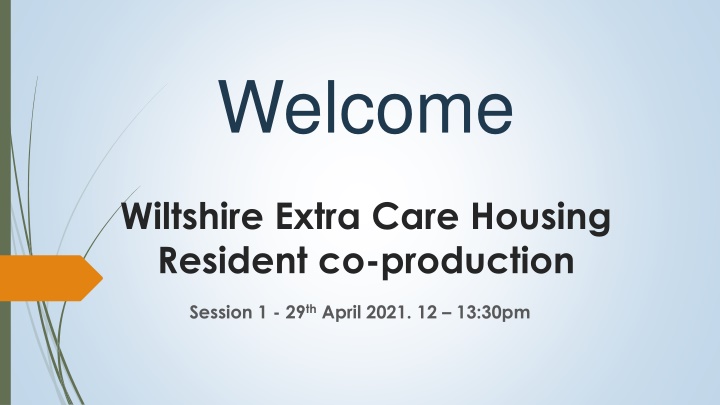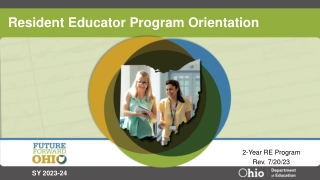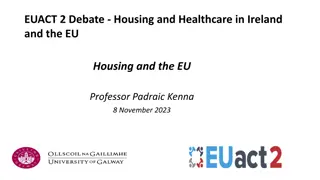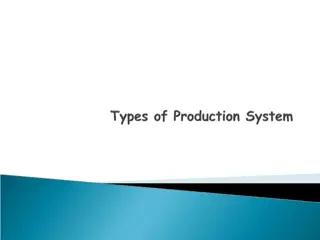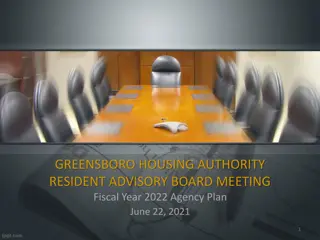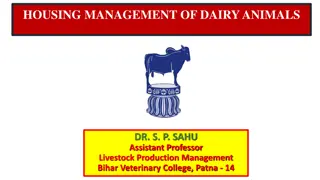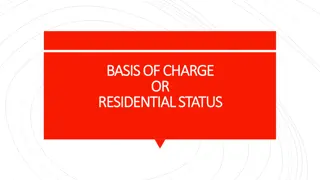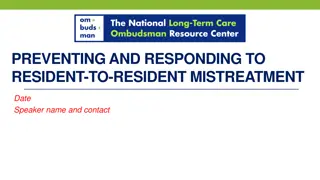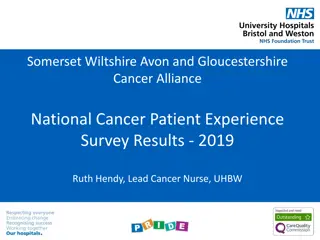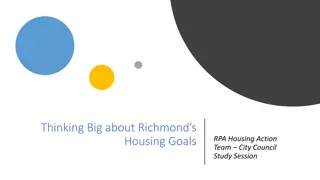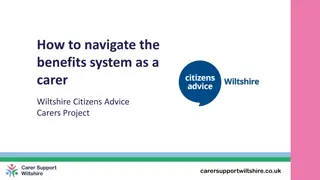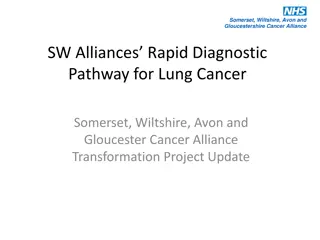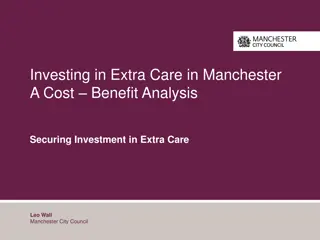Wiltshire Extra Care Housing Resident Co-production Session
Welcome to the Wiltshire Extra Care Housing Resident Co-production Session where the focus is on discussing a new support model for extra care. The session includes introductions, presentations, breakout groups for sharing ideas, and receiving feedback on the proposed approach to co-production. Join the session to participate in shaping the future of care services in Wiltshire.
Download Presentation

Please find below an Image/Link to download the presentation.
The content on the website is provided AS IS for your information and personal use only. It may not be sold, licensed, or shared on other websites without obtaining consent from the author.If you encounter any issues during the download, it is possible that the publisher has removed the file from their server.
You are allowed to download the files provided on this website for personal or commercial use, subject to the condition that they are used lawfully. All files are the property of their respective owners.
The content on the website is provided AS IS for your information and personal use only. It may not be sold, licensed, or shared on other websites without obtaining consent from the author.
E N D
Presentation Transcript
Welcome Wiltshire Extra Care Housing Resident co-production Session 1 - 29thApril 2021. 12 13:30pm
Agenda Welcome & Introductions 12:00 Housekeeping 12:05 Presentation 12:10 Break Out Groups - your questions, ideas and suggestions 12:30 1. Using the current service & reflections on first consultation findings 15m 2. What might a new model look like? 15m 3. What you need to hear more of from us? / Our proposed approach 15m Feedback from Facilitators 13:15 Proposed next steps 13:25 End & Thank you 13:30
Objectives of todays session A start our discussions on the new support model for extra care & offer some ideas to start us off Reminder of the background to the current situation Explain a bit about co-production is, and it s proposed role in decision making Most importantly - Hear from you about what you would like to see in the new model Exchange views and come with new ideas in the break-out groups Get your thoughts on the proposed approach to co-production and what we could do better There s lots on the slides for you (and others who can t join today) to takeaway and read at your leisure
WiltshireCouncil Vincent Edwards Head of Adults Commissioning Pete Twiggs Head of Ongoing Support Deborah Elliott Programme Lead, Community Services Natalie Heritage & Nick Bresler Senior Commissioners Courtney Sparks & Hannah Giles Assistant Commissioners Introductions Wiltshire Centre for Independent Living (WCIL) Kate Tutssel Wiltshire Centre for Independent Living
Housekeeping - Some tips for Microsoft Teams We will be using a Teams meeting format today This means we will need to: Ensure our microphones are muted when we are not talking (and remember to un-mute yourself when talking we will prompt you!) The toolbar is at the top of the screen any questions Just ask! Ensure there is no loud and invasive background noise that will disrupt the call for others Be mindful that people may not be on camera and may want to speak Ensure your camera is centrally focused on your whole face Remember you can be seen on camera even when you are not talking! Be respectful and act as we would in person
Some suggestions for discussions Keep an open mind. The focus is on residents & relatives views no political agendas Respect each other s opinion and make sure everyone has a chance to have their say. Facilitators are there to help with this. Today is the start of our discussion, not the end. We have months to work together. No one should miss out because they can t join an online meeting (these slides and notes of this session will be shared with all residents) We ll try and answer as many questions as we can in the breakout groups and when facilitators feedback. If we don t have the answer, we ll find out. We ll publish frequently asked questions and our answers.
Background With existing contracts ending, we consulted with residents through a survey in November/December 2020. We asked for views on the current service and what people would like to see in the future. Alongside other evidence, what we heard from residents informed recommendations considered by the council s cabinet in 2021. Some people didn t agree with the council s initial preference. Cabinet said that we should have more time (until the end of September 2021) to consult with residents and co-design a new model to meet their needs. This means that we can turn the clock back a bit on deciding the new model. We hope you agree this is helpful for everyone. We ve been able to extend contracts to March 2022 so need to aim for a new model being in place by then. No decision has been made on the final model. We can t finish this puzzle without your help. Just to clarify: No one will need to move as a result of the new model!
What is Extra Care? There are many different approaches to extra care that involve private and publicly funded public arrangements. Sometimes the arrangements are mixed. There is no one single model. The council contracts with providers to deliver the extra care support service at Needham House, Crammer Court, Meadow Court and Bell Orchard. The model currently used at these schemes has been defined as meaning independent living accommodation for residents who are: typically, over the age of 55 have current social care needs, or may develop such needs in future The type of support offered by an extra care service varies. For many, it offers practical day to day support for independent living and doesn t replicate a formal care service. People with formal care or health needs tend to have other specialist arrangements
Care Needs in Wiltshire Extra Care We also learnt that the way that the lettings and allocations process works for extra care wasn t as good at it could have been. We are committed to doing this better for the new model
Initial consultation: using the current service 55% of households responded. Overall, over 80% of respondents said they either have never used the service or do so only rarely. Only 10% use the service at least once a week. Needham: 52% don t use it. 37% use it only rarely, 11% make active use of the service at least weekly). Bell:36% haven t used the service and 33% only use it monthly. Crammer: Over 75% don t use it at all or use it rarely Meadow: Half of respondents don t use the service at all, the other half only rarely. Many residents told us they met their needs by: Friends and family Formal domiciliary care packages or other support Dedicated 24hr or Live in Care for people with particularly complex needs Key priorities: timely response , easy access to emergency services Other outcomes: reassurance / peace of mind
Initial consultation FIRST PREFERENCE Needham: Two thirds of respondents preferred a form of onsite presence (33% each for 24/7 availability and daytime service with sleep-in at night). Telecare / emergency alarm was a close second with 29% Meadow: 50% Daytime onsite emergency response service with a sleep-in presence during the night Crammer: 40% An onsite emergency response service that is available 24 hours a day Bell: 50% Daytime onsite emergency response service with a sleep-in presence during the night people told us their preferences for the future SECOND PREFERENCE Needham: 44% emergency alarm Meadow: 60% emergency alarm Crammer: 55% Daytime onsite emergency response service with a sleep-in presence during the night Bell: 50% each for advice & information and telecare / emergency alarm The multiple responses from respondents to these questions explain some of the contradictions in preferences and underline the need for further consultation.
Prevention & Affordability Preventative services can be useful at reducing or delaying the development of statutory care needs as well as helping people continue to live independently if they develop complex care needs. Good extra care can support this. Extra care services themselves though are what we call non-statutory. This means there is not the same legal requirement to provide them as e.g. homecare or a care home bed where people have eligible care needs and need council funding. As extra care and other services have developed, there can sometimes be overlaps meaning outcomes can be met in different ways through existing offers. Wiltshire Council is expecting a 45million financial deficit in 2022/23, growing to over 70million by 2024/25. There is a need for some difficult discussions to be had about what we do and do not continue to fund. Social care is a significant part of the Council s overall budget, so Where we invest in non-statutory, preventative services, we will need to make sure they are effective and deliver positive outcomes for the people that use them.
Proposed engagement approach 1. Online meetings and break-out groups 2. Face to face meetings (when COVID allows) 3. Newsletter 4. Phone: 0300 456 0100 5. Email: adultscommissioning@wiltshire.gov.uk 6. Website: www.wiltshire.gov.uk/article/1914/Extra-care-and- supported-housing 7. Residents can engage directly and/or also through an advocate or family member 8. If you need different format, please let us know!
Consultation & Co-production February 21. Cabinet gave us more time to develop the model and find a shared solution. April 21. We believe we re here 2020. Initial consultation survey The language of consultation and co- production can overlap. You might also hear us use the phrase co-design .
Co-design & decision making No decision on final model today. Just a start to discussions. All residents have a chance to have their say and influence the final design Wide range of views across resident community. We also need to consider market perspective and stakeholder priorities. Aim to complete co-design phase by end of September 2021 before formal governance approval on new model. Final model approved. Council Directors and Cabinet Member Potential providers thoughts on commercial viability Range of residents views across 4 schemes Council & landlords perspective Each part of the conversation informs the other Having our say doesn t guarantee that we all get our way
A possible model (to discuss in Break Out topic 2) We looked at 3 main types of model in February s cabinet paper. Some people didn t like the option that the council preferred at that time. Having more time to work together on the new model means we can look beyond those 3 models and think more widely about: How your outcomes are met What meets needs and provides value for money What providers can deliver Different ways of meeting people s outcomes and the role that the actual extra care contracted service provides. Just to be clear: We are NOT proposing any changes to care plans for anyone who has statutory care needs, or any formal healthcare needs. Since February we ve been thinking more about what a model could look like. The model on the next slide is NOT our preferred model we see it as a starter for 10 with you to get us thinking creatively.
Could it look like this? (how would you do it?) Needham House Crammer Court Meadow Court Bell Orchard Bell and Meadow standalone . Shared service in Devizes Regular visit from shared service in Devizes. (greatest care needs at these services). Other existing services (homecare or voluntary) use each site as a local Hub Could support where needed onsite, but also support wider local area. Could provide a daytime onsite presence. Night-time: community alarm / telecare Daytime service with regular visits to Bell & Meadow Alternating night presence. All 4 schemes with emergency call system for peace of mind. Individual care plans for statutory care continue to be met
Distance and location Needham Court Devizes. 0.3 miles from Crammer Court. 5 minute walk Crammer Court Devizes. 0.3 miles from Needham House. 5 minute walk Bell Orchard Westbury. 14 miles from Devizes. 26 minute drive) Meadow Court Pewsey. 13 miles from Devizes (23 minute drive). 22.5 miles from Bell Orchard (39 minutes drive)
Proposed timetable (have your say in break out 3) April 2021 Resident co-production session 1 Ongoing engagement with residents idea generation, queries and concerns: Jun/Jul Resident co-production session 2 (F2F at each scheme if possible) Micro-site / Virtual meetings Email / phone Regular Newsletter Jul Market Engagement Aug/Sept Resident co-production session 3 (F2F at each scheme if possible) End of Sep Co-production process ends. Report. Impact Assessment. Final meeting. Oct 2021 onwards Tender preparations Market engagement 2 Tender Process Ongoing engagement with residents during tender process Formal governance approval Could we explore ways of residents being involved in selecting the new provider? April 2022 Indicative contract award
Lets hear your thoughts and ideas in the break-out groups . We will automatically be moved into our groups. You don t need to do anything. Any problems, Natalie is on hand to help!
Welcome Back! Feedback from the break out groups 1. Using the current service & reflections on first consultation findings 2. What might a new model look like? 3. What you need to hear more of from us? / our proposed approach
Our Next Steps Write up notes from today Website go-live Write& send next newsletter Share slides and notes with all Update & publish Questions & Suggestions .and keep listening & looking for new ideas to share!
Thank you for your time and for taking part. Your ideas make this better Hope to see you next time! Find more information at: www.wiltshire.gov.uk/article/1914/Extra-care-and-supported-housing
